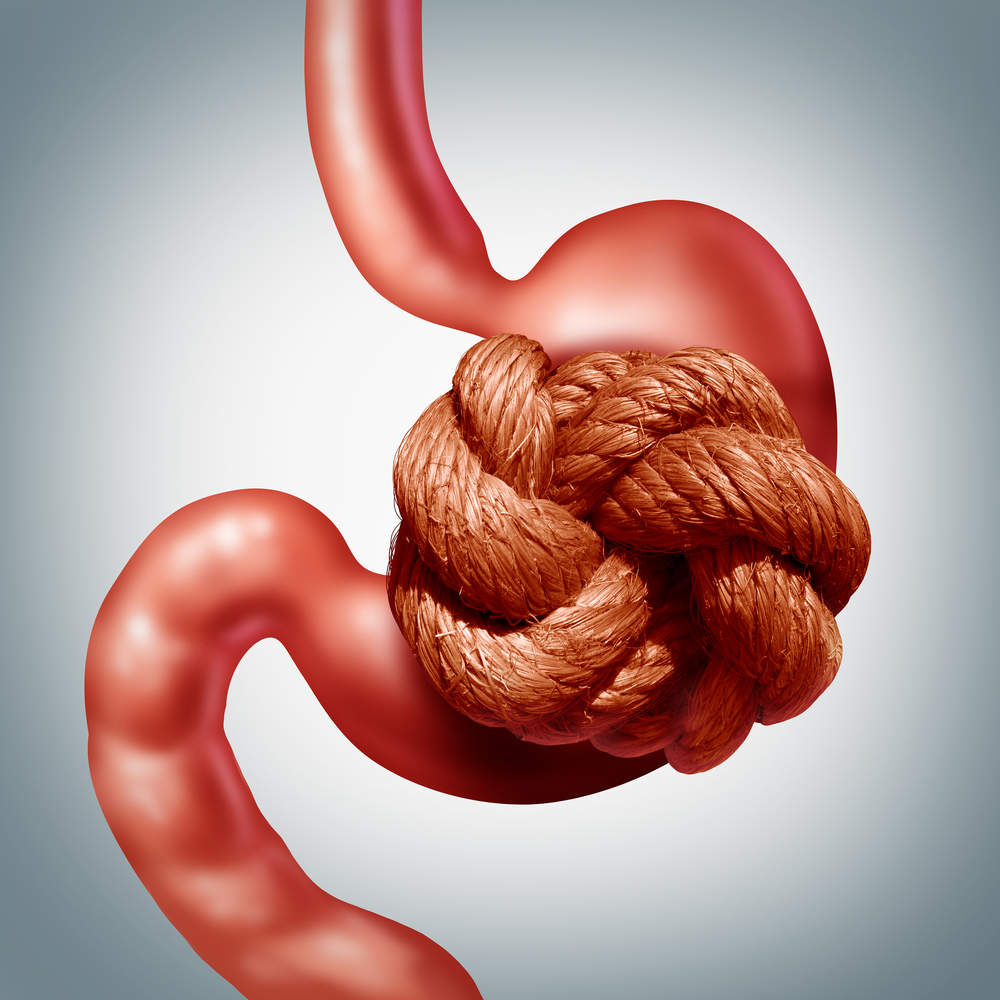Hello, I am Your Stomach

This article is a part of a series called “Heal Your Gut, Heal Your Life.” If you want to start at the beginning, click here
We all know that a good diet is essential to Abundant Health. What most of us take for granted is our digestive system. If 10 people sat down to the same meal, the nutritional math would tell you how much protein, fat, and carbohydrate everyone ‘should’ get out of the meal.
Nothing could be farther from the truth.
Your age, metabolism, and volume of stress can profoundly change how much of your food your digestive system can actually turn into you. In this article, I am going to walk through the essential of how your Stomach works, what can go wrong, and some recommendations to get your tummy back on track.
Quick Story:
I have been in practice for over two decades, and I have seen some pretty weird stuff. About 15 years ago I had a patient, a young woman with intense migraines, and nothing was working. Being the stubborn health detective that I aspire to be, I went back over everything and grilled her for half an hour about every little hiccup, literally. She had never brought that up before…
So more grilling…
Sub-clinically, she had a mild case of Hypohydrochloria or low stomach acid. We focused on that for threes and BOOM! No more migraines. Now I could write a Ph.D. thesis on all of the ways that this could make sense, theoretically anyway.
Ever since, especially with women, when a person comes in with headaches, especially frontal headaches, I often start the grilling about their stomach health,
Below are two Self Check-Up Quizzes. They are included if you are inclined to put on your health detective hat and see what’s up. And you knew this was coming. These questionnaires and advice in no way replace proper medical supervision and treatment.
Chew Your Food!
Some truths are self-evident.
When food enters your mouth it mixes with saliva, which contains water and two enzymes called salivary amylase and lingual lipase. Salivary amylase begins the digestion of carbohydrates and lingual lipase begins the digestion of fats by breaking them down into smaller fatty acids. Saliva also contains some antibacterial substances that help protect you from a foodborne disease. Also, your teeth crush your food, increasing the surface area, which increases contact with the acids and enzymes in your stomach. So, the better you chew the more you get from your food.
Your oral health can have a significant influence on the rest of your health.
If you have an overgrowth of bacteria in your mouth or chronic inflammation in your gums you may be at risk of other health complications. This is especially true if you have a degenerative or auto-immune disease.
Your Stomach
When food enters the top of your stomach it stretches the muscles of the stomach lining, causing special glands to release:
A protective mucous, which keeps your digestive enzymes from digesting you.
- Hydrochloric acid (HCl), which breaks down food and kills bacteria. HCL also stimulates the gallbladder and pancreas to get ready for work.
- Pepsinogen, which is activated inside the stomach by mixing with HCL and becomes pepsin, your main enzyme for digesting protein. Pepsin also destroys certain bacteria, yeasts, and parasites that come with your food. Pepsin prefers a pH of 2-3.5, which is very acidic. If you do not produce enough HCl, you will digest protein poorly and have little protection from “critters”.
- The Intrinsic Factor, which helps you isolate and assimilate Vitamin B12, which is absorbed at the end of your small intestine.
- Another enzyme called gastric lipase, which continues the breakdown of fatty acids.
At the bottom of your stomach, there are glands, called pyloric glands, which secrete more protective mucous, more pepsinogen (to digest protein) and a hormone called gastrin, which signals the release of more hydrochloric acid, if it is needed. The muscles of the stomach perform peristalsis, a kind message to the food which helps mix the food, as well as moving it through your digestive tract.
Another important activity, called gastric emptying, occurs as the stomach releases food into the small intestine. The pyloric sphincter, a muscle at the bottom of the stomach, allows the food to pass through in small amounts. Gastric emptying can be forced to happen too soon if you consume alcohol or caffeine with your food. This means your food gets pushed into the small intestine before it is properly digested by the stomach. Once there is food in the duodenum (the first section of the small intestine), the peristalsis of the stomach slows down and digestion occurs a little more slowly.
Three health concerns are unique to the stomach. They are:
- Insufficient stomach acid
- Excess stomach acid
- Helicobacter pylori overgrowth.
Insufficient Stomach Acid
One of the more common problems with digestive assimilation is a lack of production or a lack of release of hydrochloric acid (HCl). This can lead to many very serious health problems. If you have insufficient hydrochloric acid, you have lost your strongest line of defense against many bacteria, yeasts, and parasites. this increases the risk of a serious overgrowth of these organisms, and a serious strain on your immune system. Also, your stomach will digest protein poorly, leaving more work for the rest of your digestive system. Insufficient HCl also causes some vitamins and minerals to be assimilated poorly.
This debt of assimilation becomes especially important if your mucosal membrane is compromised because proteins can slip through the membrane and enter your bloodstream. This situation creates an over stimulation of your immune system, often causing many allergies and increasing the production of free radicals by your immune system. Insufficient hydrochloric acid also causes several essential minerals to be poorly assimilated.
Insufficient Stomach Acid Self Check-Up Quiz
A “sour, achy and sore” stomach?
Gas immediately following a meal?
Abdominal distention during and after eating?
Excessive burping?
A poor appetite?
Easily turned off from eating?
Bad breath?
Poor sense of taste?
Poor sense of smell?
Discomfort swallowing large amounts?
Sluggish bowel movements?
Becoming unusually picky about food?
Recent unexpected weight loss?
Diagnosis of anemia Yes (low HCl much more likely)?
See the attached PDF for a more advanced version. stomoch self checkup
Recovery from Insufficient Stomach Acid
- Supplement with Betaine HCL (and maybe even pepsin).
- Drink half of a cup (125 ml) of water with two tablespoons of apple cider 15 minutes before each meal. Think of this as waking up your stomach while you prepare your meals.
- Follow the principles of food combining.
- Eat small meals.
- Try and have one day off per week to relax and enjoy good food and good company.
Excess Stomach Acid
The secretion of hydrochloric acid can be over-stimulated for many reasons, the most common of which are emotional stress, poor food combinations, large meals and an increase in toxicity and inflammation in the body. One of the most consistent effects of stress is a disruption of the mucus production in the stomach and intestines. Stress affects different people in different ways, but the most common pattern is lower mucus production in the stomach and greater mucus production in the small bowel.
Eating proteins and starches together (a bad combination) can cause incomplete digestion of proteins. Your digestive system then signals your stomach to secrete more hydrochloric acid and pepsin. Eating large meals over-stimulates the secretion of hydrochloric acid by overstretching the muscles of your stomach. An increase in endotoxins (internally produced toxins) over-stimulates your liver, telling it that your stomach must not be killing off bacteria and parasites. Your liver then signals your stomach to produce more hydrochloric acid, in the hope that this will stop the excess of internal toxins. After a while, these situations become very erosive and your stomach begins to digest itself.
A burning and aching stomach pain, worse 1-4 hours after eating?
Sensation of hunger one to two hours after a meal?
Stress and thoughts of food worsen stomach pain?
Acid reflux (heartburn), especially when bending over or lying down?
Heartburn that is worse with spicy and fatty food?
Heartburn that is worse with alcohol and/or caffeine?
Heartburn that is worse with sugar, chocolate or citrus fruits and juices?
Heartburn that is temporarily relieved with consumption of milk, carbonated beverages, starchy food or antacids?
Heartburn that improves with times of rest and relaxation?
Discomfort when swallowing?
Chest pain, shortness of breath or tendency to respiratory infections?
Tendency to constipation?
Stools that become black and pasty?
Unexpected weight gain?
See the attached PDF for a more advanced version. stomoch self checkup
Recovery from Excess Stomach Acid
- Eliminate spicy, rich, fatty foods.
- Eliminate sugar, alcohol, caffeine and non-steroidal anti-inflammatory drugs (NSAIDs) if possible (consult your physician).
- Eat small meals, several times per day.
- Follow the rules of food combining.
- Eat some goats’ milk yogurt every day.
- Make a traditional bone broth and have a serving every day. (See cookbook)<?>
Overgrowth of Helicobacter Pylori
Recent research has shown that the overgrowth of a bacterium called Helicobacter pylori is associated with the development of peptic ulcers. This bacterium is unusually resistant to hydrochloric acid because it can secrete an enzyme that neutralizes the hydrochloric acid. This weakens our protein digestion and affects the natural immune functions of our stomach, which of course stimulates the increased production of hydrochloric acid, causing ulcers. A bit of a vicious cycle.
These bacteria like to burrow their way through the protective mucosal membrane and attach themselves to the lining of the stomach and duodenum. Their presence there considerably increases the likelihood of a peptic ulcer developing. In fact, killing these bacteria is sometimes essential in the recovery from excess hydrochloric acid production and from a peptic ulcer.
At present over 50% of adults between 40 and 60 years of age have a measurable overgrowth of these bacteria. Medical treatments for this condition do exist, but many people have resolved an overgrowth by changing their diet and improving their immune function. If you have any concerns about this bacterial infection or symptoms of a peptic ulcer, contact your family physician.
Take care of your tummy. More to Come Soon

